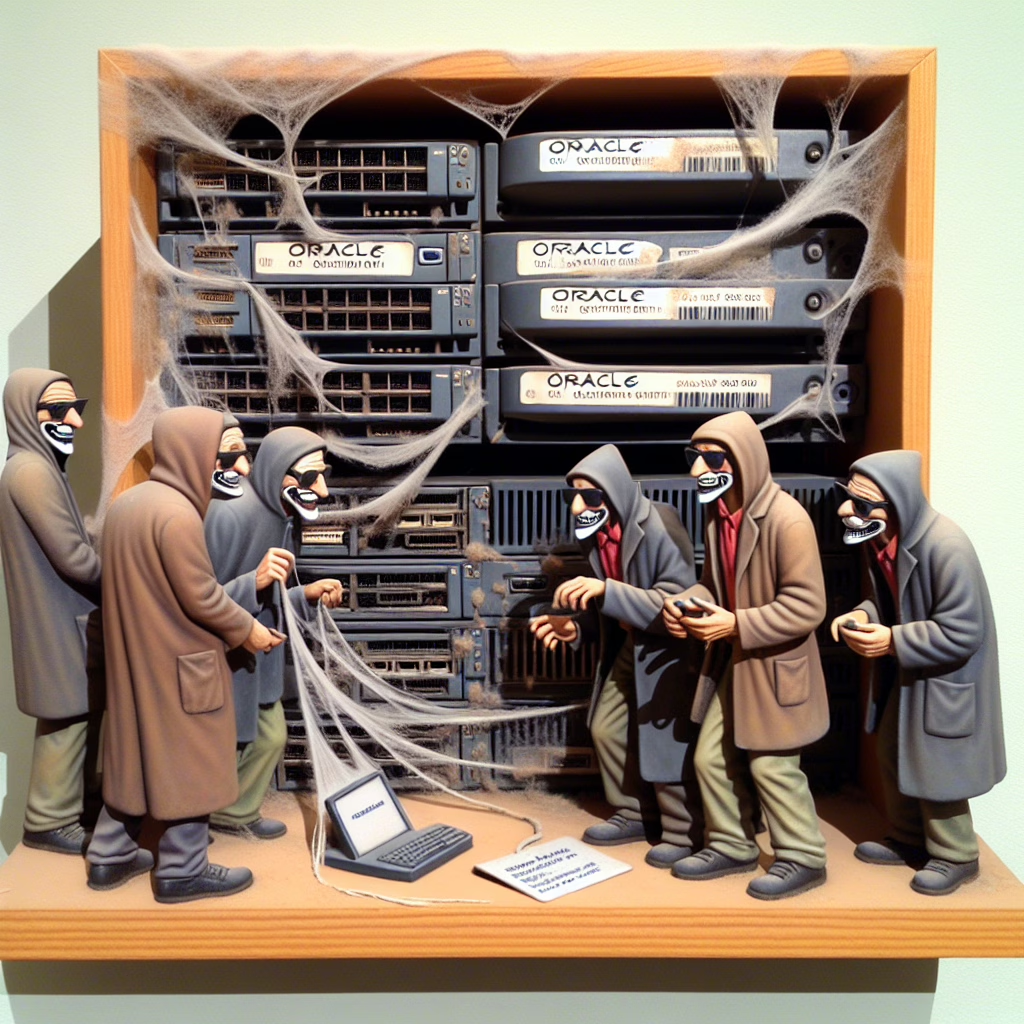In the thrilling world of cybersecurity, where every day brings a new plot twist, Oracle recently made headlines. Spoiler alert: they reported that some of their obsolete servers were hacked! Yes, you heard it right! The ancient relics of technology past have been breached. But before you start panicking and throwing your old computer out the window, let’s dive into the details of this modern-day saga.
Oracle’s Obsolete Servers: A Trip Down Memory Lane
It seems that Oracle has discovered that some of its obsolete servers have been hacked. These digital dinosaurs, clinging to life in data centers like forgotten toys, have attracted the unwanted attention of cyber miscreants. However, Oracle has been quick to clarify that this breach does not extend to their cloud services. In fact, they’ve assured us that their cloud remains as secure as a fortress guarded by a thousand knights—or at least a very vigilant IT team.
Now, what exactly qualifies as an obsolete server? Think of those machines as the aging rock stars of the tech world—still hanging on, but definitely past their prime. Once groundbreaking, today they’re more likely to serve up security vulnerabilities than data. These servers, often neglected and running outdated software, can become gateways for hackers.
The Great Cloud Debate: Safe or Not?
Despite the hacking incident involving these old-timers, Oracle insists there is no breach of their cloud infrastructure. This leads us to ponder: how can we trust such claims? Well, Oracle has emphasized their commitment to security and its proactive measures to protect customer data. They’ve likely invested a small fortune in shiny new technologies and cutting-edge defenses that keep their cloud service safer than a cat in a room full of laser pointers.
This situation raises an important question for all tech users: how do we ensure our systems are up to date? Here are some tips for keeping your own digital domain as secure as possible:
- Regular Updates: Make sure all your software is updated regularly—think of it as giving your system its daily vitamins!
- Monitor for Vulnerabilities: Keep an eye on security bulletins and patches; they’re like the warning signs on a rollercoaster ride—you want to know when things might get bumpy.
- Invest in Security Tools: Consider using firewalls and antivirus programs. They’re like having a bouncer at your digital door, ensuring only the right guests get in.
- Educate Your Team: Make sure everyone is aware of security best practices. Knowledge is power—or at least it’s better than handing out keys to the castle without checking IDs!
The Future Looks Bright for Oracle Cloud Users
While Oracle may have stumbled upon some embarrassing news regarding their obsolete servers, it’s comforting to know that they continue to prioritize their cloud security. After all, who wants to be the punchline of a cyber joke? Not Oracle, and definitely not you!
The tech community can take this incident as a reminder about the importance of maintaining robust cybersecurity measures. If even the giants can face breaches from outdated technology, what about smaller businesses? It’s time for everyone to take stock of their tech assets!
In conclusion, while we chuckle at the thought of hackers targeting ancient servers, let’s not forget the real takeaway here: keeping our systems updated and secure is paramount. Remember, just because something has served you well doesn’t mean it should stick around forever—like that old couch in your living room!
If you have thoughts on Oracle’s latest escapade or tips on cybersecurity practices you swear by, feel free to share them in the comments below! We love hearing from our readers.
For further reading about the implications of using outdated technology, check out our posts on immutable backup storage and how it can protect you against ransomware.
And a big thank you to TechRadar for providing the original scoop on this intriguing tale!

